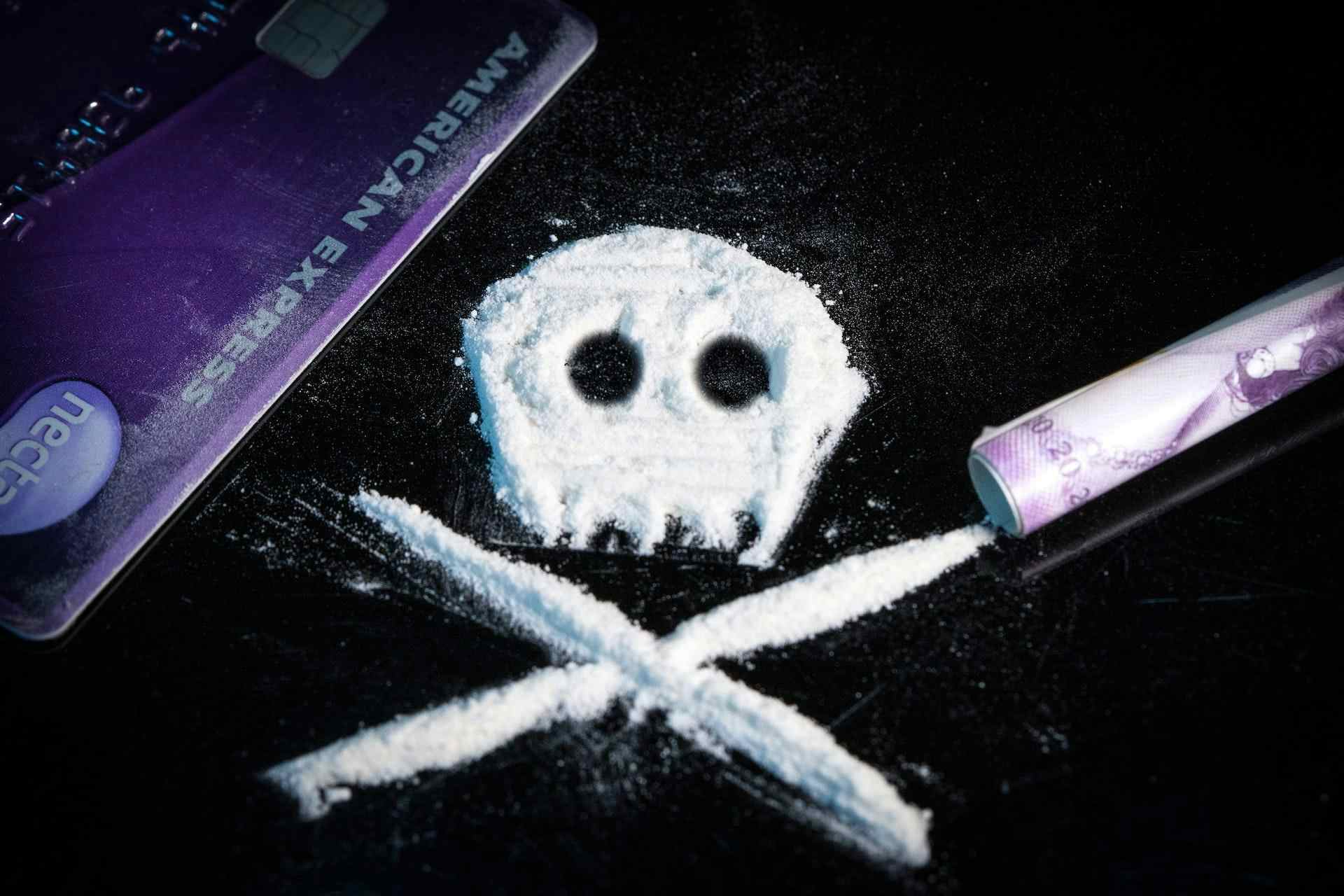Cocaine remains the second-most commonly abused illicit substance after cannabis. Statistics suggest that cocaine is used mainly in males between 15 and 34 years. Studies also report that up to 5% of users will develop a dependency or addiction within the first year of use, and 20% of these will become long-term cocaine users.
To date, few advancements have been made in combatting cocaine misuse. As a result, individuals addicted to cocaine may struggle to find help, especially given the stigma behind substance abuse. Let's examine why individuals can become addicted to cocaine and focus on the current treatment therapies available in the United Kingdom.
What is cocaine?
Cocaine, also known as 'coke', 'snow', or 'blow', is a stimulant drug from the coca plant. Crack cocaine - the commonly abused form of the drug - is processed in the form of a powder, which is then often sniffed. ‘Rock’ forms of cocaine can be vapourised and inhaled to produce a similar effect. Users may also inject liquid forms of cocaine intravenously.
Although most commonly used recreationally, some may use cocaine to manage certain medical conditions. However, the use of cocaine in a healthcare setting is limited to specific, heavily regulated conditions. For example, in the UK, prescription cocaine is only licensed for use in dentistry as a form of local anaesthetic during an inpatient procedure or for off-label use in an outpatient primary care setting to treat opioid misuse.
What are the addictive properties of cocaine?
Addiction is a chronic mental health disorder characterised by compulsive substance-seeking behaviour and drug abuse despite negative or social consequences. Cocaine addiction is prevalent globally and can cause significant somatic, psychosocial, and socioeconomic complications.
Cocaine's psychoactive and addictive effects affect the brain's limbic system. This region regulates the neurotransmitters associated with the reward and motivation pathways. When ingested, either by injection or snorting, users will experience an increased surge of dopamine, serotonin, and norepinephrine. This produces a short-term sensation of euphoria, which may make the user feel good but also create intense cravings or a desire to take the drug again. The effects of taking cocaine are typically short-lived and only last for around 10-15 minutes, thereby warranting continued use of the drug to maintain its euphoric effect.
Cocaine use in later life
Cocaine abuse in later years remains an underdiagnosed, undertreated, and comorbid condition in older people. However, studies report that substance abuse among the elderly is increasing, accounting for nearly 61% of clinical admissions in the elderly in some areas of the world. Cocaine use is associated with several comorbidities in older individuals, mostly related to the cardiovascular system.
Illicit drug use in the elderly can have severe medical consequences. Cocaine can cause an increase in blood pressure, provoke atrial fibrillation, and contribute to other pulmonary issues, all of which are common medical conditions that affect older people. Cardiac health is generally poorer among older people, making the cardiovascular effects of cocaine more dangerous and increasing the risk of heart attacks.
Despite the growing number of older people struggling with cocaine addiction, substance misuse disorders remain undertreated and misdiagnosed. In addition, identifying cocaine addiction in the elderly can be challenging due to the overshadowing of other medical conditions and the mistaken view of general cognitive and physical decline that occurs during ageing.
Notwithstanding, targeted addiction treatment for older people is still a specialised and hard-to-access service. Practitioners must work on finding new means to identify and treat substance use disorders to help combat the effect on our ageing population.
Symptoms of cocaine addiction and misuse
Cocaine can negatively affect the physiological and psychological systems of the user and have consequent secondary social implications on the user’s family and loved ones. Some people who use cocaine will undeniably report enjoyment and thrill when using cocaine. However, there are far more prevalent adverse side effects of cocaine addiction that have short- and long-term effects.
Short-term effects
Firstly, let’s take a look at the ‘high’ caused by the intake of cocaine:
- Euphoria
- Increased confidence
- Improved ability to focus
- Heightened sexual interest
These euphoric highs are often short-lived and will usually be followed by a more consequential negative ‘come-down’, which can present as:
- Increased heart rate
- A rise in body temperature
- Chest pain
- Abdominal pain
- Increased blood pressure
- Paranoia
- Nose bleeds
- Runny nose
Although most short-term side effects seem mild, serious side effects may still occur for first-time users, particularly those with pre-existing medical comorbidities. Cocaine puts the user at a higher risk for strokes, heart attacks, and other medical conditions, which can result in sudden death.
Cocaine purchased in the streets is not always 100% pure. Recently, street-bought cocaine has been found to be laced with fentanyl - a high-strength opioid used mainly for suppressing pain during surgery - which is attributed to the increasing number of cocaine overdoses occurring throughout the years.
Long-term physical effects of cocaine overuse
When cocaine is used continuously for more extended periods, the user begins to develop a tolerance to the effects of the drug, meaning that they need to take more to experience a sufficient sense of euphoria to satisfy their cravings. In turn, users will start to develop more long-term side effects of cocaine use.
Physically, long-term users of cocaine may show signs of excessive weight loss and begin to exert clinical signs of heart failure, kidney failure, and liver damage. Those who frequently snort cocaine may notice nasal septal perforation, the wearing down of the middle section of the nose. Regular administration via intravenous injection can lead to damage to the blood vessels and surrounding vascular networks.
Psychological effects
Repeated exposure to cocaine reduces the function of the brain's reward system, making it less sensitive to natural reinforcers. At the same time, our senses for stress are heightened, making what once were pleasurable activities seem like a chore, causing negative mood swings when not taking the drug.
As tolerance to cocaine builds up, users will need to take larger doses to produce the same sensations of pleasure experienced initially, consequently increasing the likelihood of cocaine overdose. Users will then develop cravings to acquire cocaine, which can present as various psychological or physical symptoms, such as:
- Being irritable and anxious
- Suffering from convulsions or seizures
- Aggression
- Depression
Cocaine withdrawal symptoms can begin as soon as a few hours after consumption of cocaine and last for several weeks, depending on the user's tolerance and habit. Withdrawal can even affect those who take cocaine in short-term binges, which can lead to irritability, panic attacks, paranoia, and psychosis.
It is not recommended to go “cold turkey” when quitting cocaine. Abruptly stopping cocaine use can cause several physical and psychological effects that can last for several weeks. Therefore, when coming to terms with your cocaine addiction and taking the first steps in recovery, it is highly advised you do so with the help of a certified healthcare professional.
Cocaine addiction treatment
Cocaine addiction can be treated by healthcare professionals who specialise in drug addiction and withdrawal. It is essential to know that when an individual enters a cocaine addiction treatment plan, they will have continued support throughout their recovery. The team will be there to provide guidance and prescribe comfort medications to ease the symptoms of withdrawal. Additionally, anyone recovering from cocaine addiction should surround themselves with a support network of family and friends and do their best to reach out to support groups in their region.
Pharmacological treatment
Current UK clinical guidelines do not recommend any specific medicines for the treatment of cocaine addiction. There are, however, several pharmacological therapies currently in development in the United States, overseen by the National Institute on Drug Abuse, including a potential vaccine.
Therapy
The road to complete recovery does not stop after detoxification. Psychosocial or behavioural therapies are the mainstay of treatment for cocaine addiction. The most popular forms of such therapies that show positive results in cocaine overuse are cognitive behavioural therapy (CBT) and contingency management (CM).
Contingency Management
Research shows that programs using motivational incentives, such as a voucher or prize-based system that rewards patients for not taking cocaine, are highly effective. For example, after providing drug-free urine tests, patients will receive prizes or earn points they can use to enhance their well-being, like payment towards a gym membership.
Cognitive Behavioural Therapy
CBT is an effective approach to preventing relapse. It is commonly used to help support long-term abstinence from drugs, alcohol, and other compulsive behavioural conditions that can impact an individual’s physical, psychological, and social welfare. During CBT, an individual will work directly with a therapist to recognise the root of the problem and find coping mechanisms to help curb cravings.
Support groups
Cocaine users who wish to stop do not have to do so alone. There are large therapeutic communities and support groups where people in recovery from substance use disorders help each other understand and change their behaviours. In addition, many addiction and dependency charities can help direct individuals to a support group nearest to them. These groups often take the form of AA, meaning that all information disclosed is confidential and will not in any way reflect negatively on the individual attending.
Don’t go “cold turkey”; help is around the corner!
As trends in cocaine use among the elderly continue to change, clinicians need to recognise the symptoms of cocaine dependence better and adjust screening protocols promptly. With that being said, many treatment centres in the UK have made recovering from cocaine addiction possible by providing tailored treatment depending on the individual’s circumstances. Talk to a friend, family member, or healthcare practitioner to find out how you or a loved one can access cocaine addiction treatment and begin the journey to recovery.








